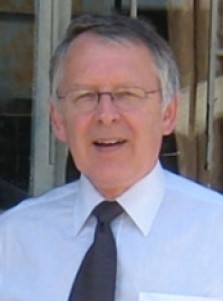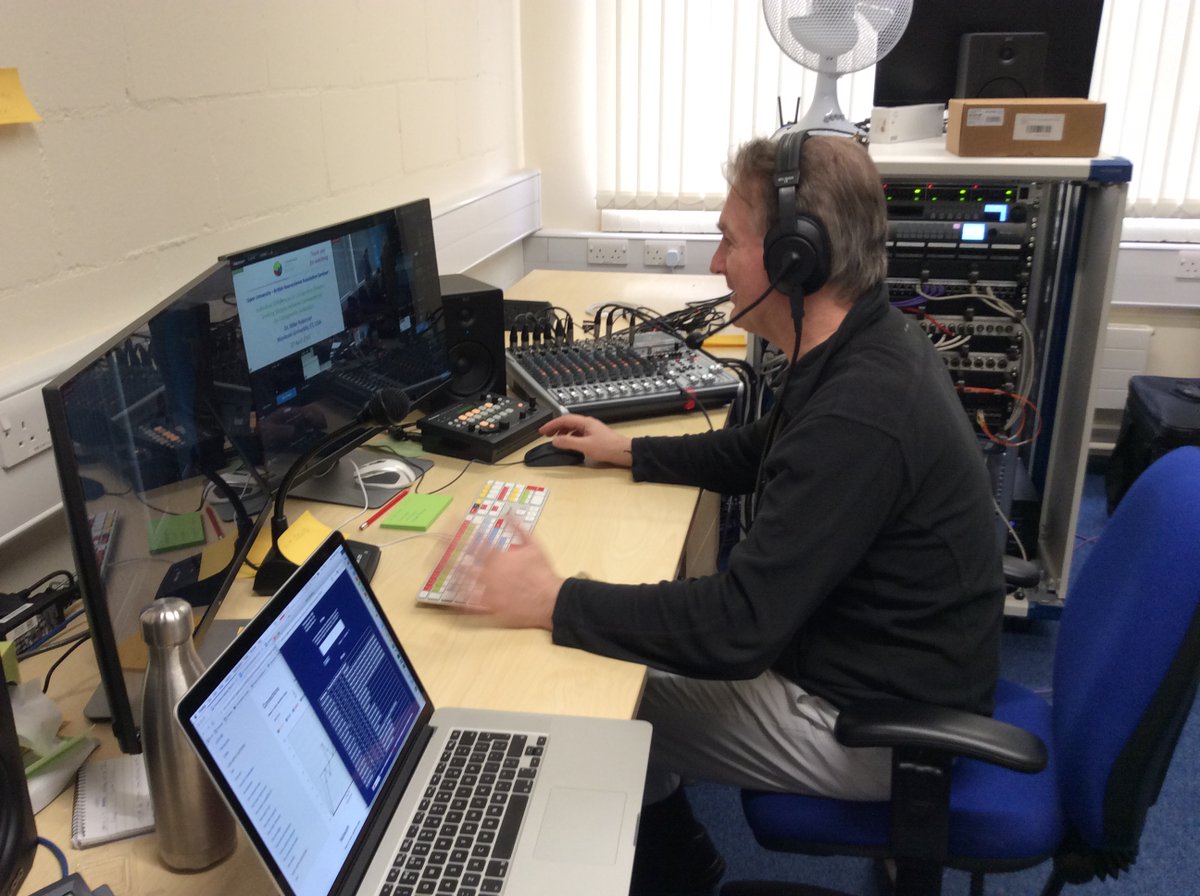BNA Annual General Meeting 2025
1st April 2025
|
|
BNA Local Group Rep (LGR): Duncan Banks |
The Open University BNA Group comprises about 57 individuals whose broad research interest covers fields as diverse as human/animal cognition to neurogenesis and bioengineering. The original members of the Open University's Brain and Behaviour Group were involved in establishing the predecessor of the BNA, the Brain Research Association in 1963. The BNA (BRA) is the second oldest established brain research organisation in the World (after IBRO). Its website appeared soon after the Internet was created and was one of the first scientific websites in existence.
It is with great sadness that we announce the sudden death of Professor Michael Stewart, Emeritus Professor of Neuroscience in the School of Life, Health and Chemical Sciences, who retired from the Open University in March 2018.

Professor Mike Stewart
Mike was an inspirational scientist and prolific researcher. He joined the OU as a lecturer in September 1975, working with Professor Steven Rose in the Brain Research Group, investigating how learned behaviour correlates with biological changes in the brain, having gained his BSc (Hons) and PhD at Queen's University Belfast. In December 1998 he was promoted to Chair of Neuroscience at the OU and was Head of the Department of Life Sciences from 1999 - 2004.
Professor Nick Braithwaite, Executive Dean for STEM said, “Throughout his OU career Mike was a confident scholar with a strong commitment to research, his contribution to all our activities were well thought out and have left a strong positive impression that will endure for many years”.
Dr Duncan Banks
| Our next Open University - British Neuroscience Association Seminar Series will be on Wednesday 17th October entitled "Fast acting antidepressants - a transformational change in modern psychiatry?" The speaker is Dr. Rupert McShane; Associate Professor and Consultant Psychiatrist, Department of Psychiatry, University of Oxford |
Date: Wednesday 17th October
Time: 11:15am
Venue: A-wing briefing room
This seminar will be live-streamed on Stadium (http://stadium.open.ac.uk/3152) and viewers can submit questions to the speaker by emailing emily.breese@open.ac.uk
Last Speaker
| The last BNA speaker was on Wednesday 18th July at 12pm. Dr. Sharon Morein-Zamir, Anglia Ruskin University gave a talk on "Tolerating uncertainty in an uncertain world - contributors to the development and maintenance of excessive certainty seeking". A link to the recording is available >> here <<. |
Abstract: One of several cognitive processes, believed to contribute to the development and maintenance of symptoms across numerous disorders, is difficulties coping with uncertainty. Patients in disorders such as Obsessive Compulsive Disorder, Autism, and Eating Disorders, develop ritualistic and excessive checking behaviours, possibly due to finding even mild or moderate states of uncertainty aversive. Intolerance of Uncertainty (IU), involving difficulties tolerating ambiguous or uncertain situations, has been proposed as a trans-diagnostic process contributing both as a cognitive vulnerability and as a maintaining factor. Research to date has focused almost exclusively on subjective self-report, limiting validity and theoretical understanding of IU and its relation to specific behaviours such as excessive checking. Performance measures that assess certainty seeking and checking behaviours in controlled settings and their possible relation to IU can address such concerns and inform clinical understanding. This talk will discuss such measures, focusing on the observing task, which was developed as a translational operant task in both rodents and humans. Such performance measures can shed light on the development and maintenance of maladaptive certainty seeking behaviours, and offer a bridge between different approaches in psychology to improve understanding and ultimately psychological and pharmacological treatments.
Previous Speakers
On 4th May Lindy Holden-Dye, Professor of Neuroscience at the University of Southampton gave a talk on ‘What can we learn from the worm?’
Abstract: Identifying neural mechanisms of behavioural plasticity is arguably at the core of understanding brain function. How can a so-called ‘simple’ model system like C. elegans facilitate this? A link to the recording is available >> here <<.
On 17th April Dr Mike Robinson, Wesleyan University, CT, USA gave a highly successful talk with 35 local members attending in person and 29 people online. The talk was entitled "Individual Differences in Compulsive Reward Seeking Despite Adverse Consequences by Optogenetic Activation of the Central Amygdala". A link to the recording is available >> here << .
About the Live Stream Technology
The BNA Local Group lectures are streamed live to a audience up to a maximum of 300 simultaneous connections. Lectures are recorded and are then available within a few hours using the same URL. The recording can be played back at a variety of resolutions to suit the bandwidth of the viewer. The lecture room uses one high resolution broadcast camera which, together with the output from the presentation computer and two radio microphones, is processed with a time delay of about two minutes using a video mixing studio.

Behind the scenes in the video and audio mixing studio.
| BNA's Facebook page |  |
| BNA's Twitter feed |  |
Professor David Nutt’s talk ‘Beyond politics - putting science at the heart of drug policy?’ PPT available upon request (currently unavailable).
Links to the new MSc. in Mental Health Science qualifications (F78, E91) and the 'Stage 1' course (S826) are provided below;
The following pocasts and video recordings of "Dementia" are available at http://www.open.ac.uk/science/main/symposia/dementia-national-symposium
The following recordings of Psychosis are available at http://www.open.ac.uk/science/main/symposia/psychosis-national-symposium
Dr Duncan Banks
27th November 2021